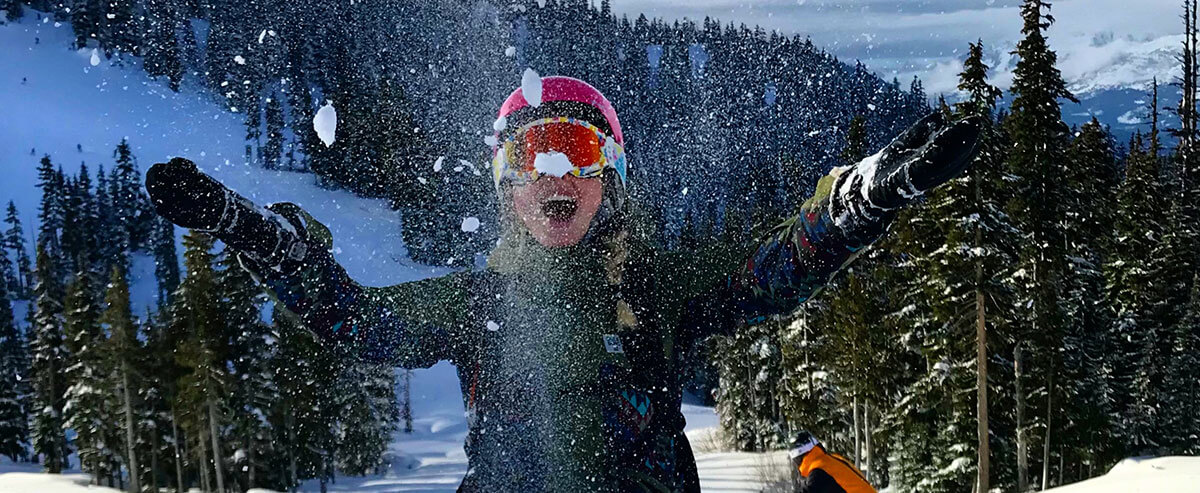Julia, why do you recommend ACC as the go-to clinic for concussion management?
ACC is a comprehensive client-centered clinic that is based on an interdisciplinary team model. I believe that ACC is set apart from other clinics that offer concussion care because of the variety of health care professionals that not only work in close proximity, but in true collaboration with each other. If I were a client choosing a clinic to manage my concussion recovery, I would choose ACC not just because of the vibrant and outgoing team of professionals, but also because of the dedication to the most up-to-date evidence-based care, which includes an interdisciplinary team.
Why is an interdisciplinary team crucial?
The interdisciplinary team model is fundamental for concussion recovery because a concussion does not conveniently target one domain at a time. The four main physical domains that are affected are the oculomotor, vestibular, autonomic and cervical systems. These are typically handled by the physiotherapists and athletic therapists at ACC. However, emotional and cognitive systems also take a toll after a concussion. All of this together leads to a decreased ability to manage daily tasks, school, and work. Occupational therapy, counseling, and neuropsychology all play an incredibly important role in covering the full scope of care.
Why is the involvement of Physiotherapy necessary?
When it comes to concussion rehabilitation, an active approach is key. Concussions are treatable through individualized, targeted exercise programs that re-train the various physical systems that are affected by a concussion. Physiotherapists at ACC are trained to assess and treat the oculomotor system, vestibular system and cervical spine. That being said, physiotherapy can’t tackle concussion recovery single-handedly. Comprehensive management is the most effective way to return to normal function, which means including athletic therapy, occupational therapy, counselling and neuropsychology in the treatment plan.
In concussion management, what does a physiotherapist look at?
When you come in for your initial physiotherapy assessment, you will have your oculomotor function, vestibular function, and cervical spine assessed. The physiotherapist looks at each of these domains individually, and in association with one another, in order to better understand the constellation of symptoms most clients experience. The physiotherapist and the client will together develop a treatment plan, that will most likely require the involvement of either athletic therapy, occupational therapy, and/or counselling in order to achieve the quickest recovery possible.
What makes you proud to work at ACC?
I chose to work at ACC first and foremost because it is a concussion-only rehabilitation clinic. I am excited to work in the field of concussions because of my background in neuroscience research and my love for all things brain-related. The field of concussion rehabilitation is growing rapidly and many aspects of it remain under-researched. Access to care is difficult for many, and misinformation is everywhere. Therefore, I’m proud to be able to deliver the most up-to-date care and de-mystify concussions for my clients, in order to help them recover and achieve their highest potential.
I grew up playing multiple sports including soccer, ringette, field hockey, ultimate frisbee, dodgeball and was a typical North Vancouver snowboarder. I’m a huge believer in movement as medicine, and can’t wait to help people get back on their feet, ski’s, skates, bikes, snowboards, skidoo’s, jetski’s, tricycles, hoverboards as soon as possible!
Some facts about Julia
As part of the ADVANCE Concussion Clinic team, Registered Physiotherapist Julia Dahlby brings experience in neuroscience, manual therapy and physical rehabilitation. Julia completed her Masters of Science in Physical Therapy at the University of Alberta and played for the Pandas field hockey team for two years. Julia offers experience in vestibular rehabilitation, orthopedics rehabilitation and is interested in researching neurological rehabilitation and the pathophysiology of concussion.
She earned the Queen Elizabeth II Graduate Scholarship and Alberta Graduate Student Scholarship in 2017 and is a Member of the Canadian Physiotherapy Association and the College of Physiotherapists of BC. She has contributed to multiple publications, and most recently, to May Z, Fenrich KK, Dahlby J, Batty NJ, Torres-Espín A, Fouad K. Following Spinal Cord Injury Transected Reticulospinal Tract Axons Develop New Collateral Inputs to Spinal Interneurons in Parallel with Locomotor Recovery. Neural Plast. 2017;2017:1932875. Her research interests are focused on neuroplasticity and concussion, vestibular rehabilitation, and concussion rehabilitation in the elderly population. Aside from her passion for neuroscience, she is a talented painter, and fearless snowboarder who completed the West Coast Trail.

Get personalized advice and treatment
Let us tailor an individualized prevention plan for your child today.

